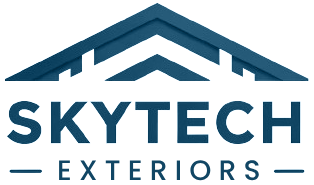What are the Pros and Cons of Installing a Metal Roof?
Choosing the right roofing material is a significant
decision for homeowners, impacting the durability, energy efficiency, and
aesthetic appeal of their homes. Metal roofing has gained popularity for its
longevity and resilience, but like any option, it comes with both advantages
and considerations. In this guide, we explore the pros and cons of installing a
metal roof to help homeowners weigh their options during the consideration
stage of evaluating roofing materials.
Pros of Installing a Metal Roof
Longevity and Durability:
Statistical Insight: Metal roofs are known for their
durability and longevity, with an average lifespan of 40-70 years or more,
depending on the material and maintenance.
According to research from the Metal Roofing Alliance (MRA),
metal roofs can last 2-3 times longer than traditional asphalt shingle roofs.
Weather Resistance:
Statistical Insight: Metal roofs are highly resistant to
weather elements such as rain, wind, snow, and hail.
The National Roofing Contractors Association (NRCA)
highlights metal roofing’s ability to withstand extreme weather conditions,
reducing the risk of damage and costly repairs.
Energy Efficiency:
Statistical Insight: Metal roofs reflect solar radiant heat,
keeping homes cooler in hot climates and reducing cooling costs.
The U.S. Department of Energy emphasizes the energy-saving
benefits of reflective metal roofing, potentially lowering cooling costs by
10-25%.
Low Maintenance:
Statistical Insight: Metal roofs require minimal maintenance
compared to other roofing materials, such as asphalt shingles.
According to the Metal Construction Association (MCA),
routine inspections and occasional cleaning are typically sufficient to
maintain the integrity of a metal roof.
Fire Resistance:
Statistical Insight: Metal roofs are non-combustible and
have a Class A fire rating, offering superior fire resistance compared to
combustible roofing materials.
Research by the Insurance Institute for Business & Home
Safety (IBHS) confirms metal roofing’s fire-resistant properties, providing
added safety and protection.
Cons of Installing a Metal Roof
Initial Cost:
Statistical Insight: Metal roofing materials and
installation can be more expensive upfront than traditional asphalt shingles.
The Metal Roofing Alliance (MRA) estimates that metal roofs
can cost 2-3 times more than asphalt shingles per square foot.
Noise:
Statistical Insight: Some homeowners may perceive metal
roofs to be noisier during rain or hail compared to other roofing materials.
Proper insulation and underlayment can mitigate noise issues
associated with metal roofs, as suggested by the National Association of Home
Builders (NAHB).
Denting:
Statistical Insight: In regions prone to severe hailstorms
or falling debris, metal roofs may be susceptible to dents and cosmetic damage.
Choosing thicker gauge metal or textured finishes can
minimize the visibility of dents and improve durability, according to guidance
from roofing experts.
Expansion and Contraction:
Statistical Insight: Metal roofs can expand and contract
with temperature fluctuations, potentially causing fasteners to loosen over
time.
The Metal Construction Association (MCA) recommends using
appropriate installation techniques and materials to accommodate thermal
movement and ensure long-term performance.
Environmental and Sustainability Considerations
Recyclability:
Statistical Insight: Metal roofing materials are highly
recyclable at the end of their lifespan, contributing to sustainable building
practices.
The Environmental Protection Agency (EPA) promotes the use
of recyclable materials in construction to reduce waste and conserve natural
resources.
Installing a metal roof offers significant advantages such as durability, weather resistance, energy efficiency, and low maintenance requirements. However, homeowners should consider factors like initial cost, noise concerns, potential for dents, and thermal expansion when evaluating metal roofing options. By weighing the pros and cons based on their specific needs, climate conditions, and budget, homeowners can make an informed decision that enhances the protection, energy efficiency, and value of their homes. Consult with a qualified roofing contractor to explore metal roofing options further and determine the best solution for your roofing needs.


